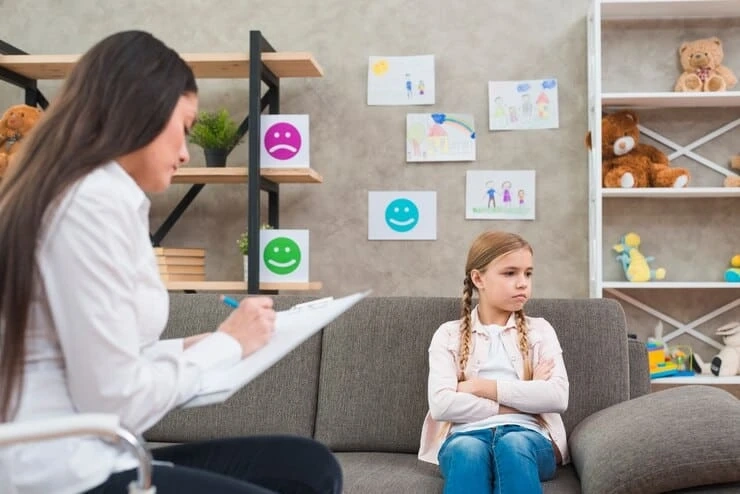In the intricate tapestry of childhood, emotional well-being is paramount. For youngsters, navigating the hurdles of growing up can be overwhelming, making it critical to have support networks in place. Access to specialized wellness services for children, such as psychotherapy, becomes a vital lifeline, providing them with the tools and assistance they need to manage the complexity of their emotional and mental well-being.
Let\'s explore the invaluable role of psychotherapy in nurturing a child\'s wellness journey and fostering emotional resilience and overall mental health.
Understanding Child Psychotherapy:
Psychotherapy, specifically tailored for children, provides a safe space for them to express thoughts and emotions. It involves therapeutic interventions to address various issues, from behavioral concerns to emotional struggles. Through age-appropriate techniques, child psychotherapy aims to enhance coping mechanisms and instill a sense of emotional balance.
Promoting Emotional Intelligence:
One of the primary benefits of child psychotherapy is the cultivation of emotional intelligence. Therapists work with children to help them identify, understand, and appropriately express their feelings. By building emotional awareness, children develop the skills to navigate complex emotions, fostering healthier relationships with themselves and others.
Supporting Anxiety and Stress Management:
Childhood can be a time of heightened stress and anxiety, with academic pressures, social challenges, and family dynamics contributing to these feelings. Psychotherapy equips children with effective stress management techniques, providing coping mechanisms that can be applied throughout their lives. By addressing anxiety early on, therapists help children build resilience and emotional strength.
Encouraging Healthy Communication:
Effective communication is a cornerstone of healthy relationships. Psychotherapy offers a space for children to enhance their verbal and non-verbal communication skills. Learning to express thoughts and feelings constructively not only aids in personal development but also lays the groundwork for successful interactions with peers, family, and authority figures.
Building Self-Esteem and Confidence:
Childhood experiences significantly shape self-esteem. Psychotherapy builds a child\'s self-worth and confidence by encouraging positive self-talk and challenging negative beliefs. As children better understand their strengths and abilities, they are better equipped to face life\'s challenges with resilience and optimism.
Navigating Family Dynamics:
Family plays a pivotal role in a child\'s life; sometimes, family dynamics can contribute to emotional challenges. Child psychotherapy often involves family sessions where open communication and problem-solving are facilitated. Addressing family dynamics in therapy can lead to a more supportive and nurturing environment for the child\'s well-being.
Coping with Trauma and Grief:
Children, like adults, can experience trauma and grief, whether from a significant life event, loss, or other adverse experiences. Psychotherapy provides a structured and supportive environment for children to process these emotions, helping them heal and develop effective coping strategies.
Fostering Resilience for the Future:
The skills acquired through psychotherapy serve as a foundation for lifelong resilience. By empowering children to understand and manage their emotions, psychotherapy equips them to face life\'s challenges with resilience and adaptability. These invaluable tools contribute to a child\'s overall wellness, laying the groundwork for a mentally and emotionally healthy adulthood. Individual psychotherapy services provide tailored support, ensuring that children receive personalized guidance on their journey to well-being.
In the intricate dance of childhood, psychotherapy emerges as a guiding partner, offering support, understanding, and tools for growth. By addressing emotional challenges early on, child psychotherapy becomes a compass, guiding children toward a path of resilience, self-discovery, and enduring wellness. As parents and caregivers, recognizing the role of psychotherapy in a child\'s journey is a decisive step toward ensuring their holistic well-being.



